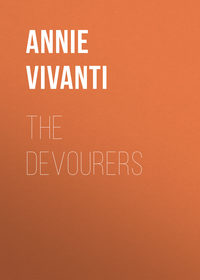Sadece Litres'te okuyun
Kitap dosya olarak indirilemez ancak uygulamamız üzerinden veya online olarak web sitemizden okunabilir.
Kitabı oku: «The Devourers», sayfa 4
Bir şeyler ters gitti, lütfen daha sonra tekrar deneyin
5,0
4 puan
Türler ve etiketler
Yaş sınırı:
12+Litres'teki yayın tarihi:
30 haziran 2018Hacim:
320 s. 1 illüstrasyonTelif hakkı:
Public Domain